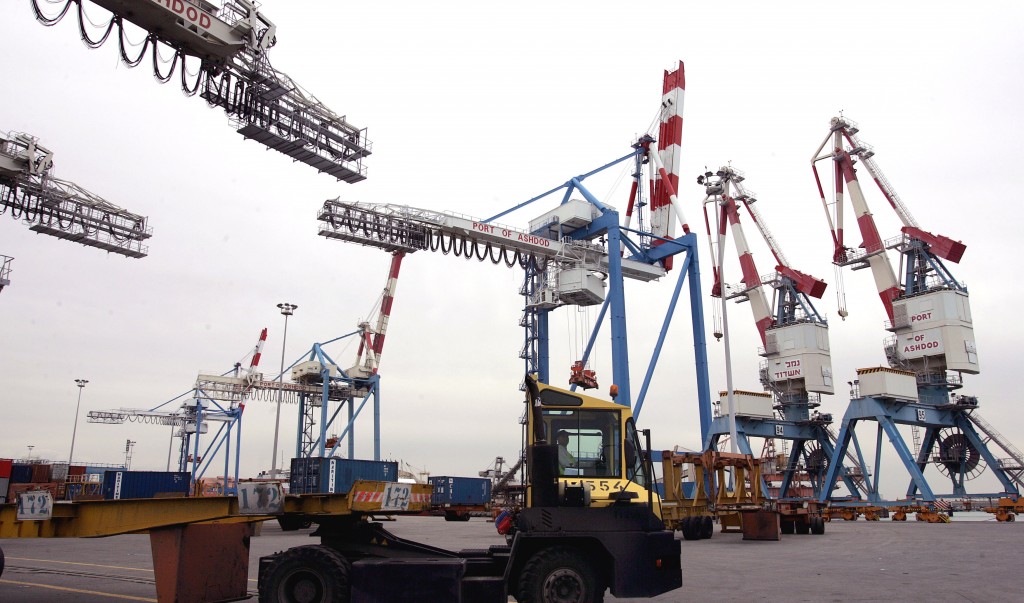Mismanaged Ports Costing Economy Billions

Inefficiency and lack of competition at Israel’s ports cost the economy an estimated 5 billion shekels a year, according to a government report that had been kept confidential until now, Haaretz reported on Tuesday.
The report was prepared by the Antitrust Authority in 2009 but was not made public due to the sensitive commercial data it contained.
The study, unprecedented in scope, found that the ports of Haifa and Ashdod operate at a rate 30% lower than that of similar-sized facilities around the world.
The document, which served as the basis for the renewed efforts toward reforms at the ports undertaken by the new government, is likely to strengthen the hand of officials who are advocating reform despite the opposition of the labor unions.
The report concluded that competition between the two existing ports is very limited: Businesses have little choice between them due to their proximity to one another and the high cost of overland shipping. This conclusion was supposed to have led the authority to declaring the ports to be regional monopolies, though this did not occur.
It also recommended the promotion of intra-port competition, through privatization. This conclusion underpinned a government decision in 2007 to build two new docks at Haifa and Ashdod to compete with the existing ports.
The Antitrust Authority’s findings were consistent with the Trajtenberg Committee’s a year and a half ago, which assessed direct damage to the economy due to mismanagement of hundreds of millions of shekels.
This, according to the committee, was in addition to the high labor cost at the ports and other government monopolies, estimated at 36% higher than the cost of similarly qualified labor in other sectors of the economy. The committee, however, noted that it hadn’t calculated in indirect costs arising from the ports subjecting the country’s commercial activity to uncertainty.
“The inefficient performance by Israel’s ports imposes on foreign traders very high economic costs which are mainly reflected in three areas: the cost of time spent by ships and their cargo in port, the reliability of foreign traders in international commerce, and steeper fees for users arising from a higher cost structure — mainly for labor,” the Trajtenberg committee wrote.
This article appeared in print on page D36 of edition of Hamodia.
To Read The Full Story
Are you already a subscriber?
Click "Sign In" to log in!

Become a Web Subscriber
Click “Subscribe” below to begin the process of becoming a new subscriber.

Become a Print + Web Subscriber
Click “Subscribe” below to begin the process of becoming a new subscriber.

Renew Print + Web Subscription
Click “Renew Subscription” below to begin the process of renewing your subscription.












